Al Sharpton
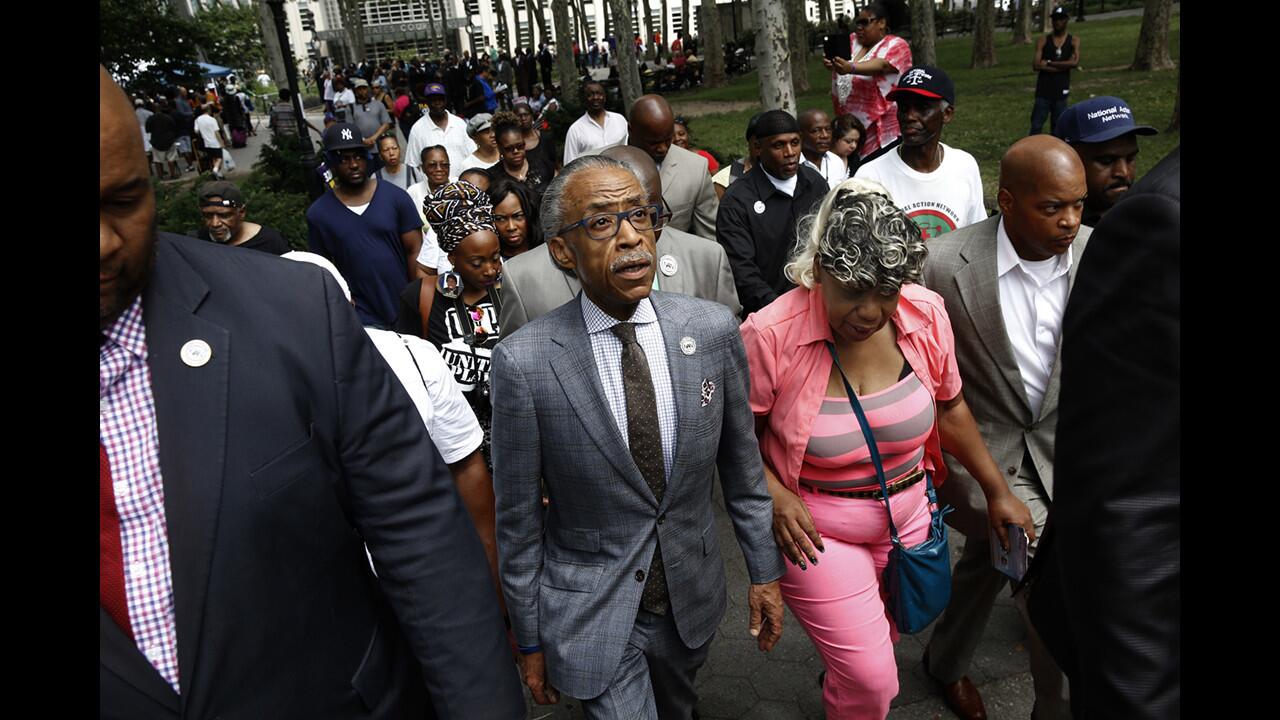
The Rev. Al Sharpton, center, and Gwen Carr, mother of Eric Garner, leave a July 18 rally in Brooklyn commemorating the one-year anniversary of Garner’s death.
(Carolyn Cole / Los Angeles Times)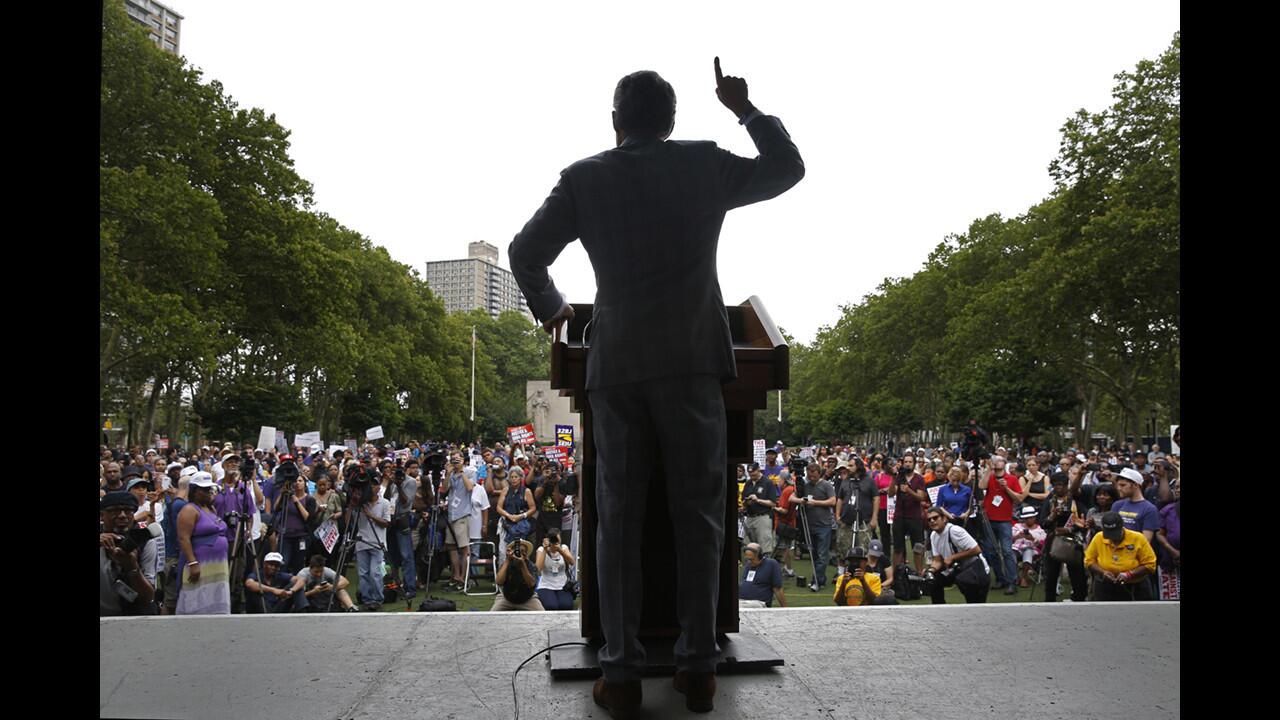
Sharpton speaks at the rally. He scoffed at critics who he said had expected people to protest Garner’s death “for a few weeks, and then move on.” “But we’re still here,” he said. “We’re not going anywhere.”
(Carolyn Cole / Los Angeles Times)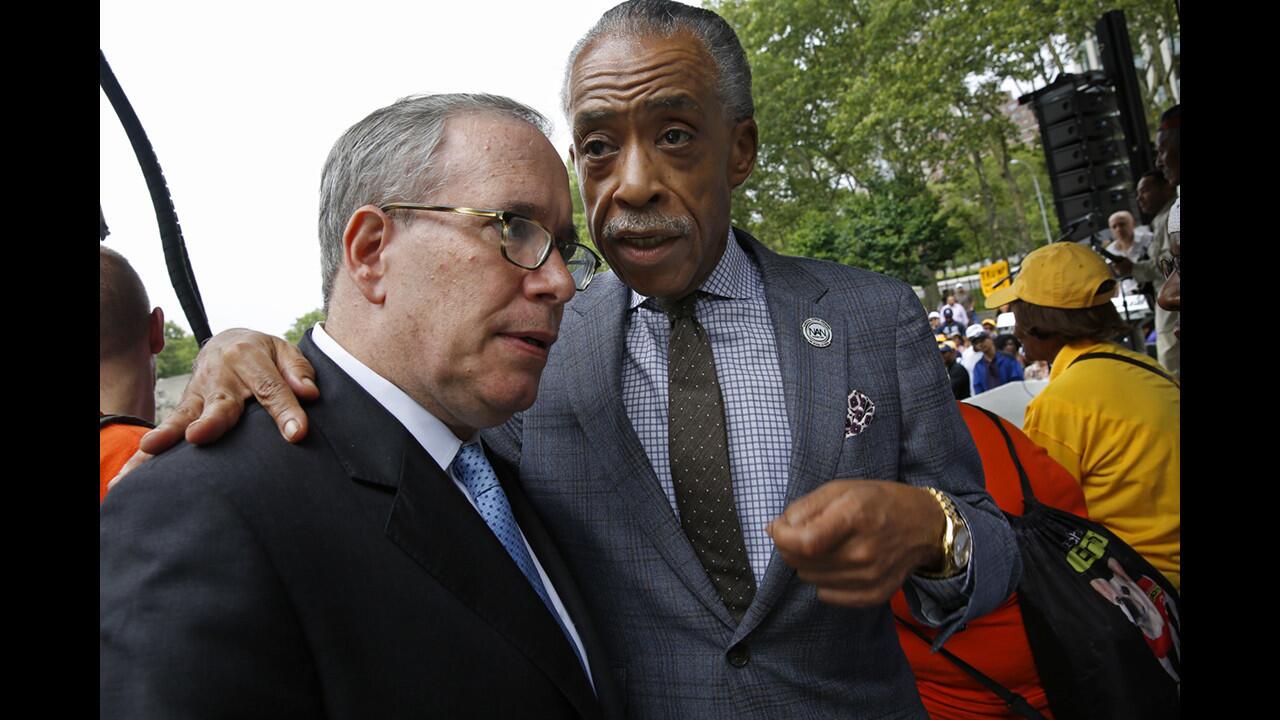
Sharpton talks to New York City Comptroller Scott Stringer before Stringer’s speech at the rally.
(Carolyn Cole / Los Angeles Times)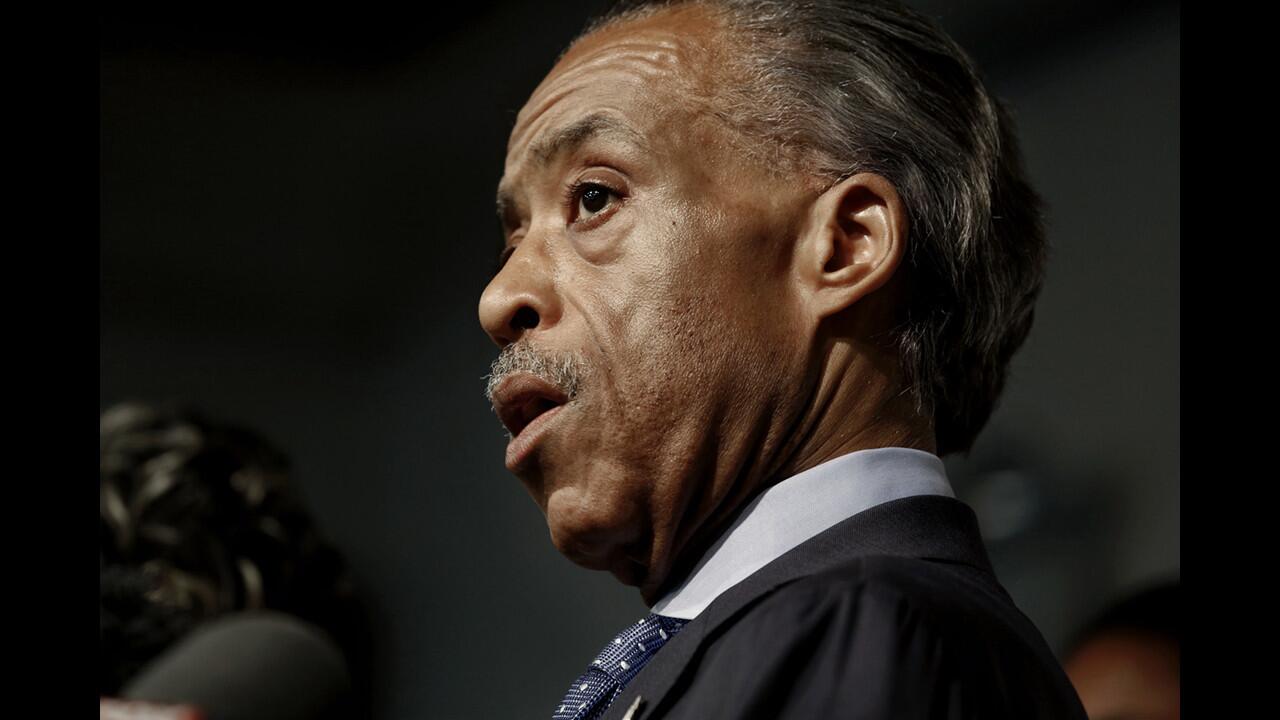
In recent years, killings of unarmed blacks that have ignited public outrage have provided a fresh pulpit for Sharpton.
(Carolyn Cole / Los Angeles Times)Advertisement
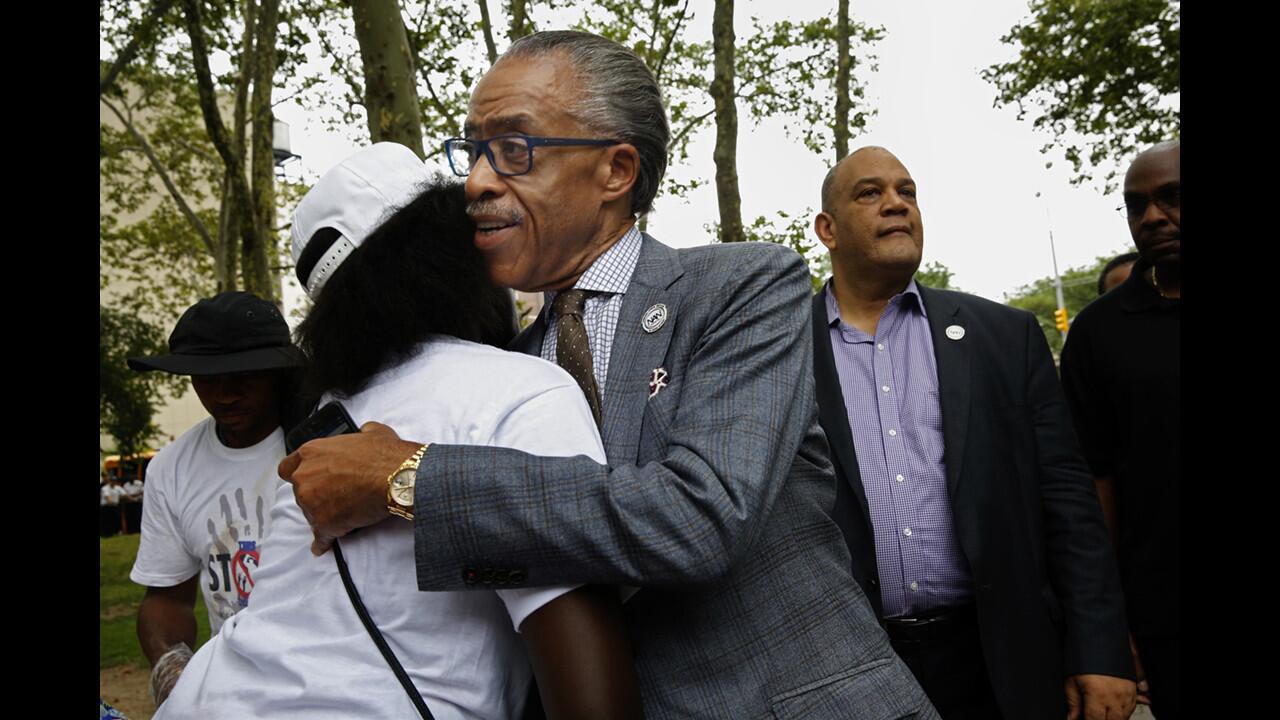
Sharpton hugs a supporter at the rally.
(Carolyn Cole / Los Angeles Times)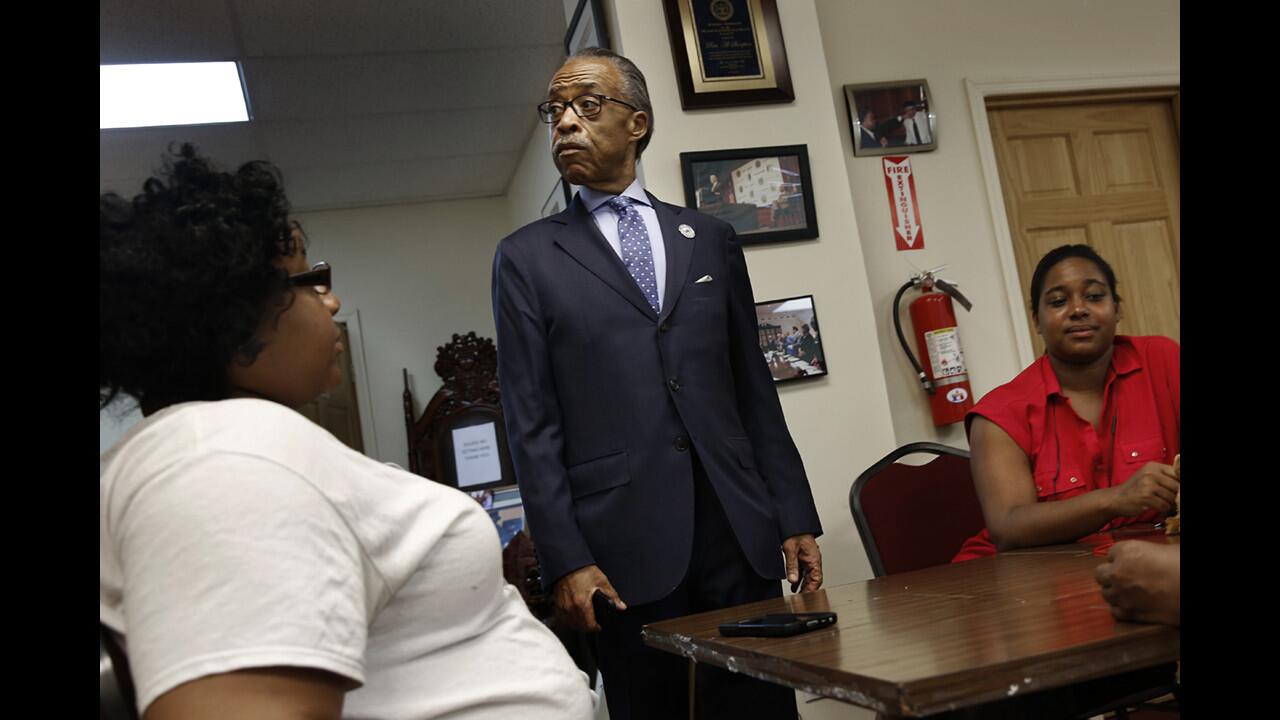
Sharpton meets with the family of Eric Garner at his National Action Network headquarters in Harlem on July 14 after the family won a settlement of $5.9 million from New York City.
(Carolyn Cole / Los Angeles Times)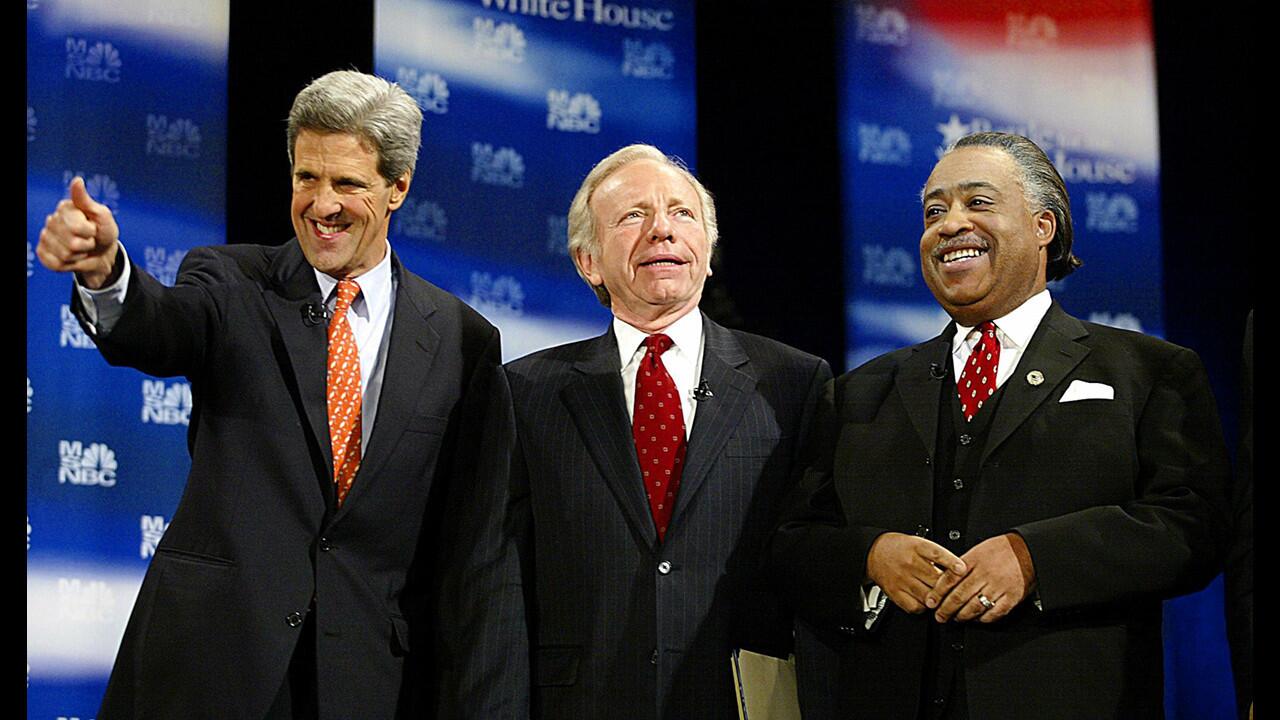
Democratic presidential candidates John Kerry, left, Joe Lieberman and Sharpton before a debate in Greenville, S.C., on Jan. 29, 2004. Sharpton “is just a genius at inserting himself into national conversations,” a longtime observer said. “You’d be ill-advised to underestimate this man.”
(Steve Jaffe / AFP/Getty Images)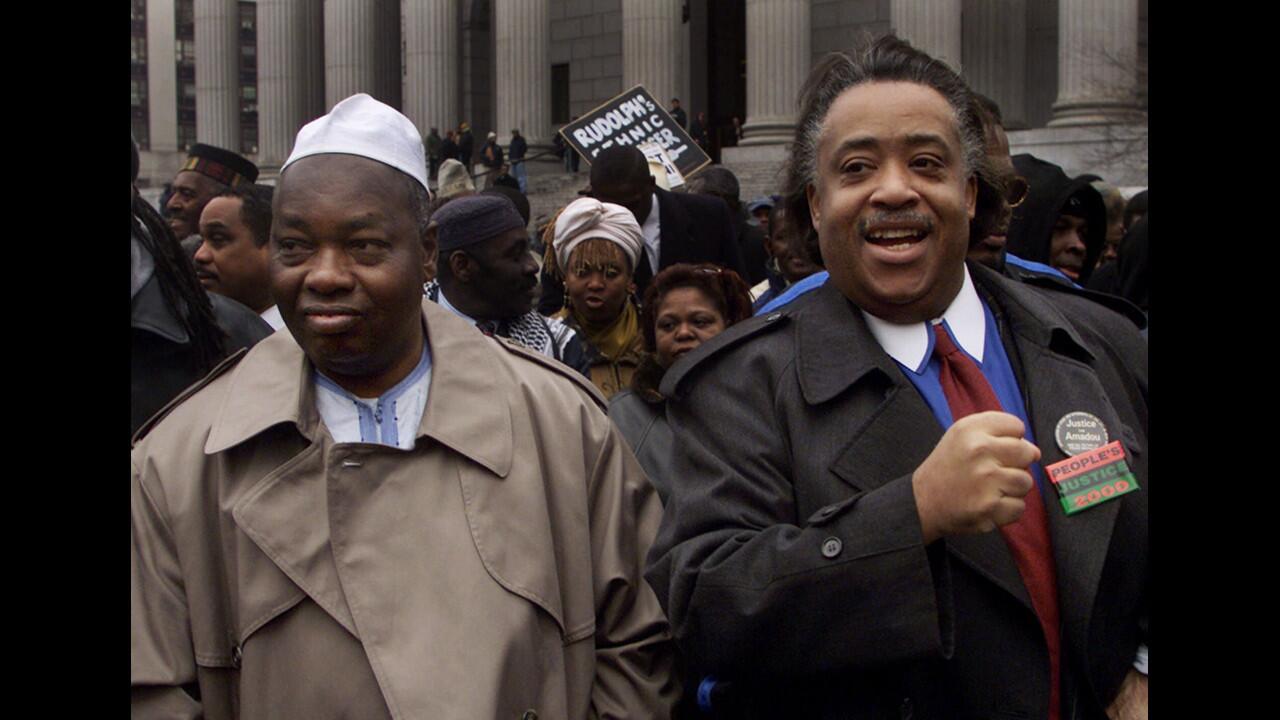
Saikou Diallo, father of Amadou Diallo, left, and Sharpton leave a rally in 1999 outside New York’s Supreme Court building. The rally demanded that the federal government take over the Amadou Diallo shooting case. Four New York police officers were eventually charged with murder in the shooting of Diallo, an unarmed 22-year-old immigrant from Guinea. The officers were acquitted.
(Suzanne Plunkett / Associated Press)


